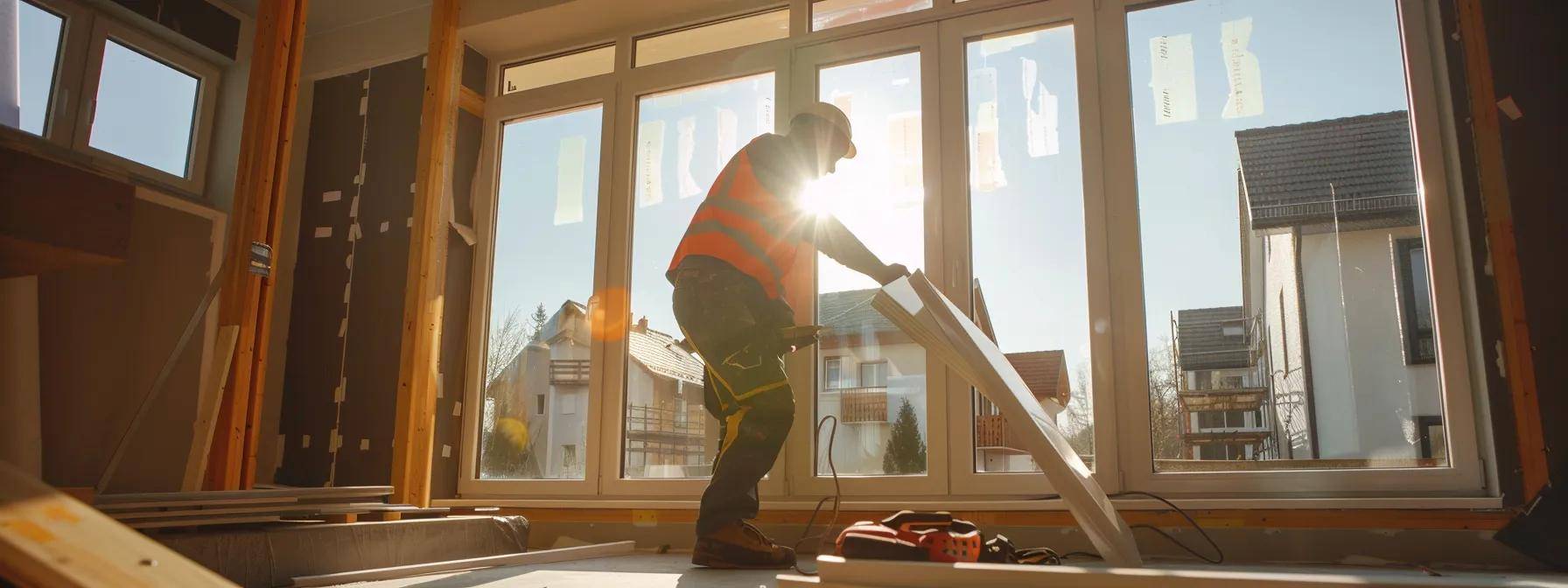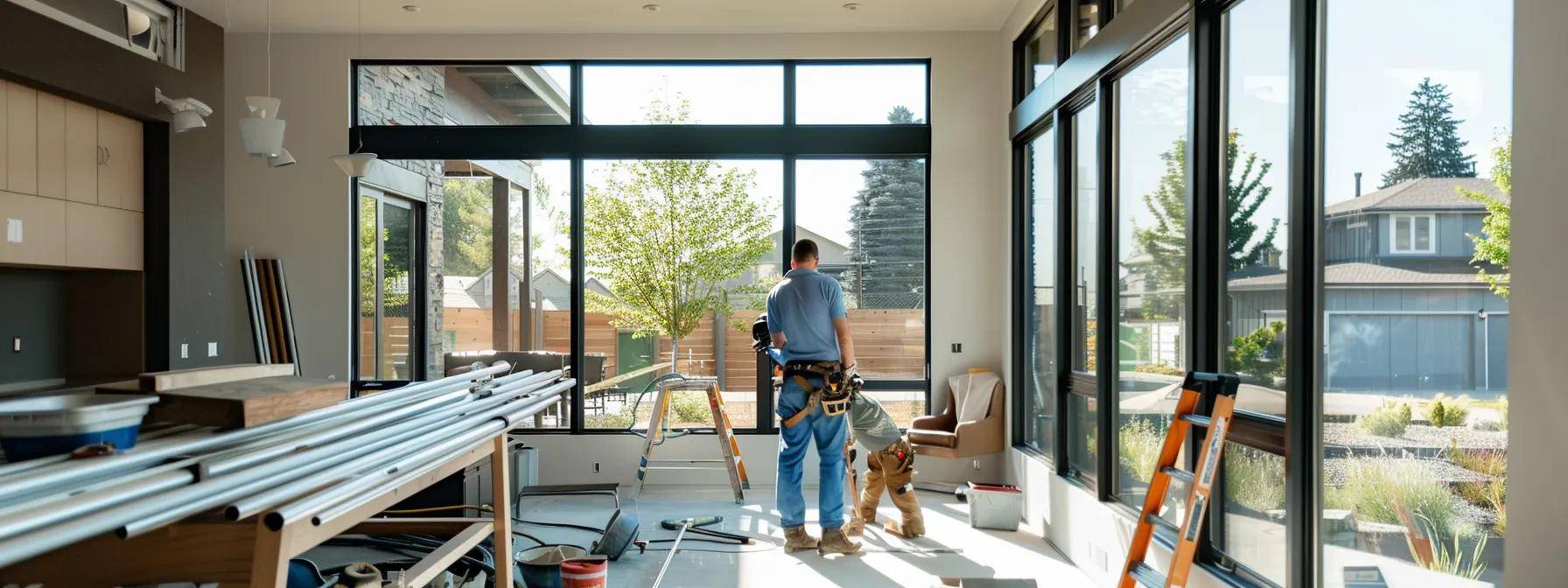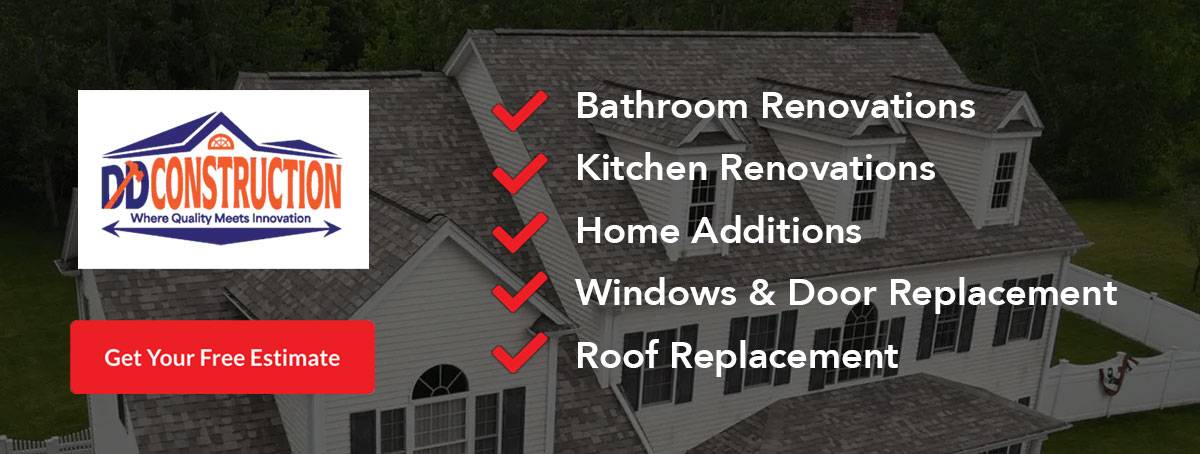What Is the Average Window Replacement Cost in Massachusetts?
The average window replacement cost in Massachusetts typically ranges between $600 and $1,000 per window. This estimate includes both labor and materials and can fluctuate based on window type, installation complexity, and location. Many local experts, such as dd construction, can offer additional guidance tailored to specific project needs. Homeowners in Greater Boston and other densely populated regions may face higher rates due to increased labor costs and stricter building codes. For instance, while a basic vinyl window may cost around $600, premium options like fiberglass or wood-clad windows might reach $1,000 or more.
How Much Do Different Window Types Cost in Massachusetts?
Different window types come with varying price tags due to material quality, design, and energy efficiency ratings. Standard vinyl windows are among the most affordable, averaging $400 to $700 per unit. Fiberglass windows, offering enhanced durability and energy efficiency, typically range from $700 to $1,000, while wood windows can exceed $1,000 because of their premium aesthetics and craftsmanship. Factors such as advanced sealing technologies in casement and awning windows, and the extra labor required for bay or bow windows, further influence prices. The growing demand for Energy Star-rated windows also pushes prices upward as manufacturers incorporate advanced glazing techniques and low-emissivity coatings.
What Are the Typical Installation Fees for Window Replacement?
Installation fees in Massachusetts are influenced primarily by labor rates and the complexity of the process. On average, labor costs range from $100 to $300 per window, depending on factors like old window removal, structural modifications, and sealing techniques to prevent air leakage. In urban areas, where labor rates tend to be higher, installation fees may exceed these averages. Specialist charges may apply for hard-to-reach or custom scenarios, such as upper-story replacements or older homes requiring additional weatherproofing. Homeowners should secure a detailed quote outlining both material and labor charges. Many companies also offer financing options and warranties to help manage the overall cost.
How Do Material Choices Affect Window Replacement Prices?
Material choices significantly affect overall window replacement costs. Vinyl windows are popular because they offer an affordable, low-maintenance solution; fiberglass provides increased longevity and energy performance; while wood windows deliver a classic aesthetic and natural insulation but often require more upkeep. Aluminum windows are durable but may need additional thermal breaks to improve energy efficiency. Composite frames, which combine the benefits of wood and vinyl, offer a balanced option of durability, low maintenance, and energy efficiency. Homeowners must weigh the upfront cost against lifecycle benefits to make an informed decision that suits both their budget and energy efficiency goals.
What Factors Affect the Price of Window Replacement in Massachusetts?

Several factors influence the overall cost of window replacement in Massachusetts. These include the window’s size and style, energy efficiency features, local building codes, and the complexity of the installation process. In this market, New England’s harsh winters require high-performance windows to reduce heating costs, thereby increasing the initial investment. Every aspect of the installation—from the removal of old windows to carefully fitting new ones—must be executed professionally to ensure long-lasting performance.
How Does Window Size and Style Influence Replacement Costs?
Larger windows or custom-shaped designs require more material and additional labor. Specialty styles such as casement, double-hung, or sliding windows offer unique benefits but may involve extra installation challenges. For example, bay and bow windows require additional framing, which drives up costs. Moreover, historical homes with non-standard designs may incur higher costs due to the need for specialized craftsmanship and matching materials.
What Role Does Energy Efficiency Play in Pricing?
Energy efficiency is a crucial factor in window pricing. High-performance windows that meet Energy Star standards reduce heating and cooling costs but carry a premium price. Features such as double or triple glazing, low-E coatings, inert gas fills, and advanced frame designs improve performance. The long-term energy savings often justify the higher upfront cost, especially with available rebates or tax credits through programs like Mass Save.
How Do Local Building Codes and Climate Impact Costs?
Stricter local building codes may require windows to meet rigorous energy efficiency, soundproofing, or fire safety standards, sometimes necessitating additional materials or specialized labor. The Massachusetts climate—with cold winters and hot summers—demands windows that can resist condensation, air leakage, and structural stresses. These factors contribute to the overall cost by requiring higher quality materials and more complex installation methods.
How Does Labor and Installation Complexity Affect the Price?
Labor represents a significant portion of window replacement costs. The difficulty of the installation—such as the removal of outdated windows, necessary frame modifications, and weatherproofing—directly influences labor costs. Older homes with non-standard dimensions or historical features often require extra time and expertise. Variations in regional labor rates mean that projects in urban or historic districts may have higher costs due to the precision and additional time required.
Which Are the Best Window Replacement Companies in Massachusetts?
Selecting a reputable window replacement company in Massachusetts ensures quality workmanship, transparent pricing, and reliable customer service. Homeowners should consider factors like experience, customer reviews, warranty offerings, and post-installation support. The best companies provide professional consultations, in-home assessments, and competitive financing options. Focusing on durability and energy efficiency, top firms are often certified by Energy Star and participate in rebate initiatives such as Mass Save. Companies like DD Construction have earned a strong reputation for high-quality craftsmanship and dependable service.
What Makes a Window Replacement Company Reliable in Massachusetts?
Reliability is assessed by verified credentials, industry certifications, and consistent customer satisfaction. A reliable company will showcase a robust portfolio, clear licensing, and industry recognition from organizations like the Better Business Bureau. Pre-installation consultations, comprehensive warranties, and transparent pricing signal trustworthiness. Many reliable companies also invest in ongoing technician training and advanced installation techniques, ensuring that each window is perfectly aligned, sealed, and energy efficient.
How Do Companies Provide Transparent Pricing and Warranties?
Reputable companies provide detailed written quotes that clearly break down costs into materials, labor, and extra fees, eliminating surprises. Warranties covering material defects and installation workmanship—often lasting 5 to 20 years—offer additional consumer protection. This transparency and commitment to quality reassure homeowners that they are making a sound financial decision while providing support through financing options and free consultations.
What Customer Support and Financing Options Are Offered?
The best window replacement companies offer robust customer support throughout the pre-, during, and post-installation phases. Many provide online tools for scheduling consultations, securing free quotes, and tracking project progress. Financing options, including interest-free payment plans and low-interest financing partnerships with local banks or credit unions, help reduce upfront costs and ease financial burdens.
What Financing Options Are Available for Window Replacement in Massachusetts?

Financing options help make window replacement projects more affordable for homeowners. Many companies offer flexible payment plans that allow clients to spread the cost over several months or years. Local banks and credit unions provide loans tailored for home improvement projects. In addition, programs like Mass Save may offer rebates, reduced interest rates, or cash incentives for Energy Star-rated windows. These options are particularly appealing for homeowners looking to upgrade to more energy-efficient windows without straining their cash flow.
How Do Flexible Payment Plans Work for Window Replacement?
Flexible payment plans allow homeowners to spread the cost over time, typically requiring a down payment followed by fixed monthly installments. Providers such as DD Construction partner with financial institutions to offer plans that sometimes feature minimal or no interest for a set period. Homeowners should review the fine print to understand fees, repayment conditions, and the overall terms of the agreement.
What Are the Benefits of Financing Through Local Providers?
Financing through local providers offers personalized service and an understanding of regional market conditions. Local banks and credit unions in Massachusetts are often more flexible, offering competitive interest rates tailored to local economic conditions. They may also provide faster approval times and better customer support, helping reduce the overall cost of window replacements.
How Can Financing Affect the Overall Cost Breakdown?
Financing reduces the need for a large upfront payment, spreading the cost over time and making quality window replacements more accessible. A well-structured financial plan not only eases the immediate financial burden but can also facilitate additional upgrades that boost long-term energy savings. By leveraging local incentives and rebates, financing can ultimately lower the net overall cost of the project.
How Much Do Double-Pane Windows Cost in Massachusetts?
Double-pane windows are popular in Massachusetts for their excellent insulating properties and energy efficiency. On average, these windows cost between $500 and $1,000 per unit, including installation. Featuring two layers of glass with an insulating air or argon gas fill, double-pane windows dramatically reduce heat transfer and help maintain stable indoor temperatures. Costs vary based on window size, frame material, and specific energy efficiency features, with potential rebates available through programs like Mass Save.
What Are the Advantages of Double-Pane Windows?
Double-pane windows provide superior insulation through their dual-glass design, which reduces heat loss in winter and limits heat gain in summer. This dual barrier also dampens noise, making them a good choice for urban settings. They enhance home comfort and reduce dependence on heating and cooling systems, resulting in lower energy bills, while also contributing to lower greenhouse gas emissions and an eco-friendly property profile.
How Does Double-Pane Window Pricing Compare to Other Types?
When compared to single-pane windows—which generally range from $200 to $500—and triple-pane windows that can exceed $1,200, double-pane windows offer a balanced cost-to-benefit ratio. They are widely regarded as the standard for modern homes because they effectively provide both energy efficiency and noise reduction at a competitive price.
What Installation Considerations Affect Double-Pane Window Costs?
Installation of double-pane windows requires precision to maintain their insulating properties. Labor costs may increase if adjustments to window frames are needed or if access is limited. Installation generally involves accurate measurements, removal of existing trim, and careful application of caulk or weather stripping to prevent leaks. In older or historical homes, additional work may be necessary to adapt modern windows to existing frames, affecting the final cost.
How Can Homeowners Save Money on Window Replacement Costs in Massachusetts?

There are several strategies for saving money on window replacement without compromising quality or efficiency. Choosing energy-efficient models can lower long-term heating and cooling expenses, while taking advantage of local rebate programs like Mass Save can reduce upfront costs. Additionally, obtaining competitive quotes and working with experienced local contractors minimizes the risk of overcharging. Strategic scheduling—such as opting for off-peak times or promotional periods—can also yield financial benefits.
What Are the Best Energy-Efficient Window Options to Reduce Long-Term Costs?
Energy-efficient window options typically include double-pane designs with low-E coatings and argon gas fills. These windows minimize heat transfer and help maintain indoor temperatures efficiently, which can significantly cut energy bills. Although they may have a higher initial cost, available rebates and long-term energy savings often justify the investment.
How Does Choosing Local Experts Impact Cost and Quality?
Local experts ensure that window installations meet local building codes and are optimized for Massachusetts’ climate. Contractors like DD Construction offer personalized consultations and precise measurements, which improve installation quality and reduce the chance of costly repairs later. Their familiarity with local rebate and financing programs often helps lower overall expenses.
When Is the Best Time to Schedule Window Replacement for Cost Savings?
Scheduling window replacement during off-peak seasons, typically in the fall or spring, can result in lower labor rates and access to promotional financing or rebates. Planning replacements before extreme weather conditions ensures immediate energy savings and may qualify homeowners for seasonal discounts or bundled service deals.
What Should You Expect During the Window Replacement Process in Massachusetts?
The window replacement process typically begins with an in-home consultation during which professionals assess the current windows, overall condition, and specific needs. This is followed by taking detailed measurements and discussing design, material, and energy-efficient options. Once a comprehensive quote with timelines and warranty details is provided, the process proceeds in phases: removal of old windows, installation of the new units, and finishing touches such as sealing and inspections to ensure compliance with local building codes. Open communication throughout the process helps address any concerns promptly.
How Is an in-Home Consultation Conducted?
During an in-home consultation, a qualified technician assesses window conditions, takes measurements, and discusses design options with the homeowner. This face-to-face evaluation identifies potential challenges—such as structural issues or outdated materials—that might affect installation. The consultation covers design preferences, energy efficiency requirements, and budget constraints, ensuring that the replacement windows will meet both aesthetic and functional expectations.
What Are the Steps of Professional Window Installation?
Professional window installation follows a systematic process: – Removal of old windows and preparation of the opening, including cleaning and minor repairs. – Careful placement of the new window into the opening, ensuring it is level and plumb before securing it. – Application of weather stripping and caulking to create a tight, energy-efficient seal. – Reinstallation of trim and a thorough inspection to confirm compliance with local standards and warranty requirements. Each step is executed with precision to maximize performance and longevity.
How Are Warranties and Post-Installation Support Handled?
Reputable companies offer warranties covering both the product and installation workmanship, often lasting between 5 and 20 years. Post-installation support typically includes follow-up visits for minor adjustments, assistance with any warranty claims, and advice on routine maintenance. Detailed documentation outlining warranty coverage is provided to ensure homeowners have peace of mind and that any issues are promptly and professionally addressed.
Detailed Lists and Tables
Below are detailed lists and tables that offer further insights into window replacement costs, material options, and financing details in Massachusetts.
List 1: Key Factors Increasing Window Replacement Costs
- High-Quality Material Selection – Premium materials such as wood, fiberglass, and composite frames increase both initial costs and long-term durability. These materials offer superior insulation properties and aesthetic appeal.
- Energy Efficiency Features – Enhanced insulation and low-E coatings add a premium to costs, as such windows reduce heating and cooling bills and often qualify for rebates.
- Complex Installation Requirements – Custom installations and structural modifications can increase labor charges, especially in older or uniquely designed window openings.
- Size and Style Variations – Larger or uniquely designed windows require more materials and specialized labor, raising overall expenses.
- Removal and Disposal of Old Windows – Proper removal and disposal add to overall cost due to the careful handling required.
- Local Labor Rates – Regional variances in labor costs contribute significantly to the total expense, particularly in urban areas.
- Compliance with Building Codes – Stricter local codes may necessitate additional materials and labor, increasing overall costs while ensuring safety and efficiency.
List 2: Top Materials for Window Replacement and Their Benefits
- Vinyl – Affordable with excellent energy performance and low maintenance.
- Fiberglass – Exceptionally durable with high energy efficiency and resistance to warping.
- Wood – Offers a classic aesthetic and natural insulation, though it requires periodic maintenance.
- Aluminum – Durable and lightweight; may need enhancements for better energy efficiency.
- Composite – Combines the strengths of wood and vinyl, offering a low-maintenance yet durable option.
- Low-E Coating – Improves energy performance by reducing heat transfer while maintaining brightness.
- Argon Gas Fill – Enhances insulation by reducing heat conduction across glass panes.
List 3: Financing Options and Their Key Advantages
- Home Improvement Loans – Provide dedicated funds for renovations with competitive interest rates.
- Credit Union Financing – Often offers lower interest rates and personalized service.
- Manufacturer Financing – Special financing incentives may offer zero or low-interest rates.
- Rebate Programs – Programs like Mass Save lower net costs through cash incentives.
- Deferred Payment Plans – Allow homeowners to delay payments, easing immediate financial pressure.
- Interest-Free Promotions – Short-term plans offer savings if the balance is paid off within the promotional period.
- Local Bank Loans – Tailored to local market conditions with personalized service and quick approvals.
List 4: Steps to Ensure Quality Window Replacement
- Conduct a Thorough In-Home Consultation – Professionals assess conditions, take measurements, and discuss options.
- Obtain Multiple Written Quotes – Comparing detailed quotes helps secure the best price and quality.
- Verify Contractor Credentials – Check certifications, licenses, and reviews to ensure reliability.
- Review Warranty and Post-Installation Support – Ensure comprehensive coverage for future peace of mind.
- Select Energy-Efficient Options – Prioritize windows with high Energy Star ratings to reduce long-term costs.
- Schedule Installation During Off-Peak Seasons – Lower labor rates and promotional discounts can reduce overall expenses.
- Plan for Post-Installation Maintenance – Regular maintenance helps extend window lifespan and maintain efficiency.
Table 1: Comparison of Window Materials
Below is a comprehensive table comparing window materials, their features, benefits, and typical cost ranges.
| Material | Typical Cost Range (per window) | Energy Efficiency | Maintenance Needs | Durability | Aesthetic Appeal |
|---|---|---|---|---|---|
| Vinyl | $400 – $700 | Moderate | Low | High | Modern, versatile |
| Fiberglass | $700 – $1,000 | High | Low | Very High | Sleek, minimalistic |
| Wood | $900 – $1,200+ | High | High (regular upkeep) | Moderate | Classic, elegant |
| Aluminum | $500 – $800 | Low (unless enhanced) | Low | High | Contemporary |
| Composite | $800 – $1,100 | High | Low | Very High | Attractive, natural |
Table 2: Financing Options Overview
An overview of financing options for window replacement projects is outlined below.
| Financing Option | Interest Rate Potential | Repayment Period | Down Payment Requirement | Key Advantage | Typical Provider |
|---|---|---|---|---|---|
| Home Improvement Loans | 4% – 8% | 5-15 years | Varies | Dedicated funds with flexible terms | Banks and Credit Unions |
| Credit Union Financing | 3% – 7% | 3-10 years | Low | Lower rates and personalized service | Local Credit Unions |
| Manufacturer Financing | 0% – 6% | 12-24 months | Minimal | Promotional offers and low or no interest | Window Manufacturers |
| Deferred Payment Plans | Often 0% during promo | Short-term | Minimal | Delayed payments reduce upfront cost | Home Improvement Retailers |
| Interest-Free Promotions | 0% for promotional period | 6-12 months | Full installment later | No extra cost if paid on time | Selected Contractors |
| Local Bank Loans | 4% – 8% | Customizable | Moderate | Tailored to local market and needs | Local Banks |
Table 3: Steps in the Window Replacement Process
The following table outlines the critical stages in the window replacement process.
| Step | Description | Key Considerations | Estimated Time | Outcome |
|---|---|---|---|---|
| Initial Consultation | On-site assessment of window conditions and measurements | Accurate measurements, material review | 1-2 hours | Detailed project scope and quote |
| Removal of Existing Windows | Safe disposal of outdated or damaged windows | Proper handling to avoid damage | 1-3 hours/window | Opening prepared for installation |
| Installation of New Windows | Precise fitting and alignment of the new windows | Level, plumb fit; proper sealing | 2-4 hours/window | Secure, energy-efficient installation |
| Post-Installation Sealing | Caulking and weatherproofing | High-quality seal to prevent leaks | 1-2 hours/window | Enhanced insulation and weatherproofing |
| Final Inspections and Adjustments | Quality checks and minor tweaks, documenting warranty details | Meeting local code requirements | 1-2 hours | Customer satisfaction and warranty activation |
| Follow-Up and Maintenance Advice | Post-installation review and scheduling routine checks | Long-term performance upkeep | Ongoing | Extended window lifespan and energy savings |
Frequently Asked Questions
Q: What is the average cost of window replacement in Massachusetts? A: Window replacement in Massachusetts typically ranges between $600 and $1,000 per window, including both materials and labor. Costs can vary based on window type, size, installation complexity, and regional labor rates. Homeowners in urban areas like Greater Boston should expect higher costs.
Q: How do energy-efficient windows impact utility bills? A: Energy-efficient windows—especially those with double-pane construction, low-E coatings, and argon gas fills—reduce heat transfer significantly. This design minimizes energy loss, leading to lower heating and cooling bills. Many homeowners also qualify for rebates through programs like Mass Save, which helps offset the initial investment.
Q: Why is it important to work with local window replacement experts? A: Local professionals ensure installations meet regional building codes and suit the specific climate challenges of Massachusetts. Experts like those at DD Construction provide personalized consultations, competitive pricing, and comprehensive warranties. Their local market knowledge also aids in accessing rebates and financing options.
Q: What financing options are available for window replacement projects? A: Homeowners can choose among various financing options, including home improvement loans, credit union financing, manufacturer financing, deferred payment plans, and interest-free promotions. Each option offers benefits like lower interest rates, flexible repayment terms, and reduced upfront costs.
Q: How long does the window replacement process typically take? A: The process begins with a consultation, followed by removal, installation, and finishing steps. Projects typically take between one and two weeks, including final inspections and minor adjustments, to complete a high-quality installation.
Q: Can I get a warranty on my new replacement windows? A: Yes, reputable companies offer warranties covering both the product and installation work. These warranties, which may range from 5 to 20 years, protect against material defects and installation issues, providing homeowners with peace of mind.
Q: What maintenance should be performed after installation to maximize window longevity? A: Regular maintenance—such as thorough cleaning, periodic seal inspections, and timely re-caulking if needed—helps extend the life of replacement windows. Homeowners should also consider annual check-ups with their installer to address any issues before they become major problems.





